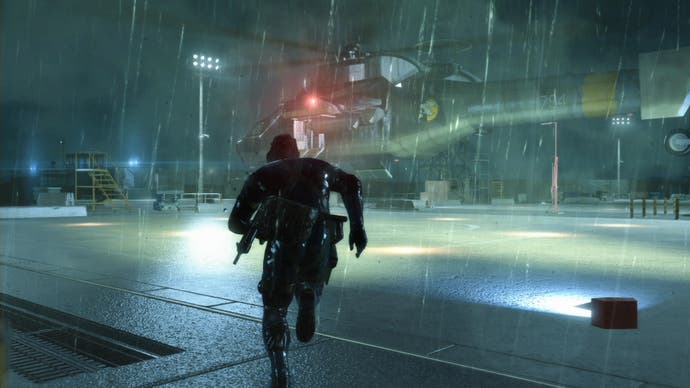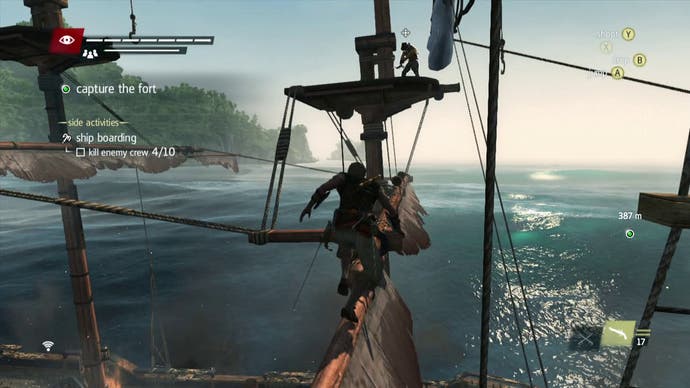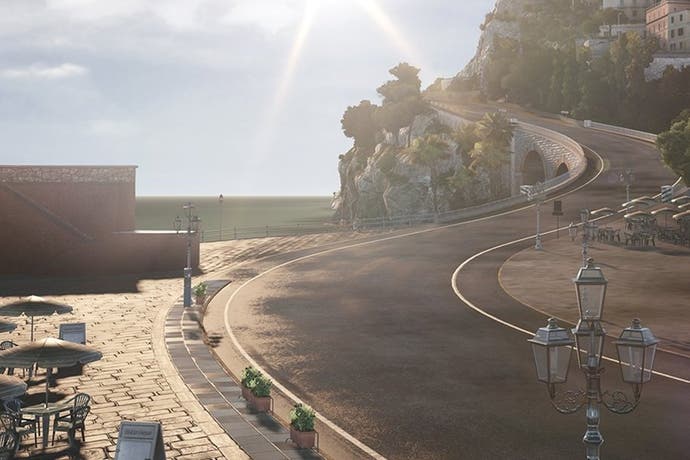Death to the mini-map
Why it's time to tear up the open world genre's greatest crutch.
I recently took some time off to unwind the only way I know how, taking to the dense green countryside of South Wales in a rented car for a week away. It wasn't with a particularly inspiring ride, mind - a freshly minted Fiesta complete with a whopping three cylinder, 1.0 engine complemented by Ford's EcoBoost turbo technology - but as Outside Xbox's Mike Channell once told me as he heeled and toed his way through one of Milton Keynes' many roundabouts in a loaned Vauxhall Corsa, the fastest car in the world is always a rental car.
Taking to the single-track roads that thread across the border between Abergavenny and Hay-on-Wye one crisp, sunny morning, those three pots under the bonnet seemed plenty enough. Teetering towards 60mph with brambles flailing the car at either side and the rough tarmac dipping round a corner towards an unknown abyss, the speed limit all of a sudden seemed a little too generous, the thrill of the open road tipping towards out and out fear. That's all part of the pleasure of driving, though, where the right time and the right place can make up for being behind the wheel of not necessarily the right car.

Playing Forza Horizon 2 soon after, I was hoping to recapture a little of that. The original Horizon did a better job than most of bottling the wonders of the open road into a video game, tying it together with a neat string of systems that made it, to my mind, one of the driving games of its generation. Horizon 2 does just as good a job and in the expanses of its southern European countryside I reckon there's one of the best excuses yet to invest in the new generation.
Yet for all the beauty of its countryside, those lilting roads that cut through parched fields and roll out endlessly into the distance, something didn't feel quite right. Instead of drinking in the environment and divining the tarmac, second-guessing where it'll twist and turn as it dips out of sight, my vision was trained entirely on the bottom-left corner of the screen, following the mini-map as it marked out my next destination. For all of Playground's investment in art and technology, I was effectively playing a top-down racer as sophisticated as the 30-year old Gran Trak 10.
You can switch the mini-map off in Forza Horizon 2, thankfully, and the game improves immeasurably in its absence - you're reading the road and taking in the sights, properly immersed in the joy of driving rather than blindly speeding from one checkpoint to another. The mini-map isn't a problem exclusive to Playground's game, of course, but killing it in Horizon reminded me that so many games could benefit from losing this crutch.
Kojima Production's Metal Gear Solid: Ground Zeroes won my heart earlier this year for being one of the first big open world games to siphon the mini-map off into the background. It helped that it was a small open world, of course, but in excising that one element from the in-game HUD, Ground Zeroes encouraged an intimacy with the map: it asked you to look and observe in three dimensions, dynamically altering the way you interact with the environment.

Contrast and compare with something like Assassin's Creed: Black Flag, where the briny atmosphere is obliterated by a wash of markers and objectives, a to-do list constantly hovering in front of you when you should be left to enjoy the wonders of the open sea. Strip it away and the game becomes that little bit more difficult to play, but beneath all that clutter an elegance is revealed in Ubisoft's expansive world.
The problem's not exclusive to open world games, either. The other night I stumbled into one of Battlefield 4's hardcore servers, where the mini-map is completely excised, and was impressed by how much better the experience was. That one edit means you're instantly more alert, more engaged and more immersed - a state which most games strive so hard for.
So why can't it be killed? There's the matter of convenience, and how the blight of the mini-map has slowly bled out into real life. I'm as guilty as anyone of spending long afternoons walking around the streets of central London wandering from one place to another transfixed to a 6-inch screen, navigating via Google Maps and ignoring the architecture around me. Elsewhere, GPS has numbed the pleasure of driving and of the open road, providing a marker that reduces cross-country drives into a dumb blue line.
Convenience shouldn't be a concern of video games, though - immersion, on the other hand, most definitely should. Glorious digital cities are being obscured by the mini-map, entire games hobbled by this crutch. It's time to tear it apart for good, and let us discover these virtual worlds for ourselves.




-3-31-23-screenshot.png?width=291&height=164&fit=crop&quality=80&format=jpg&auto=webp)




